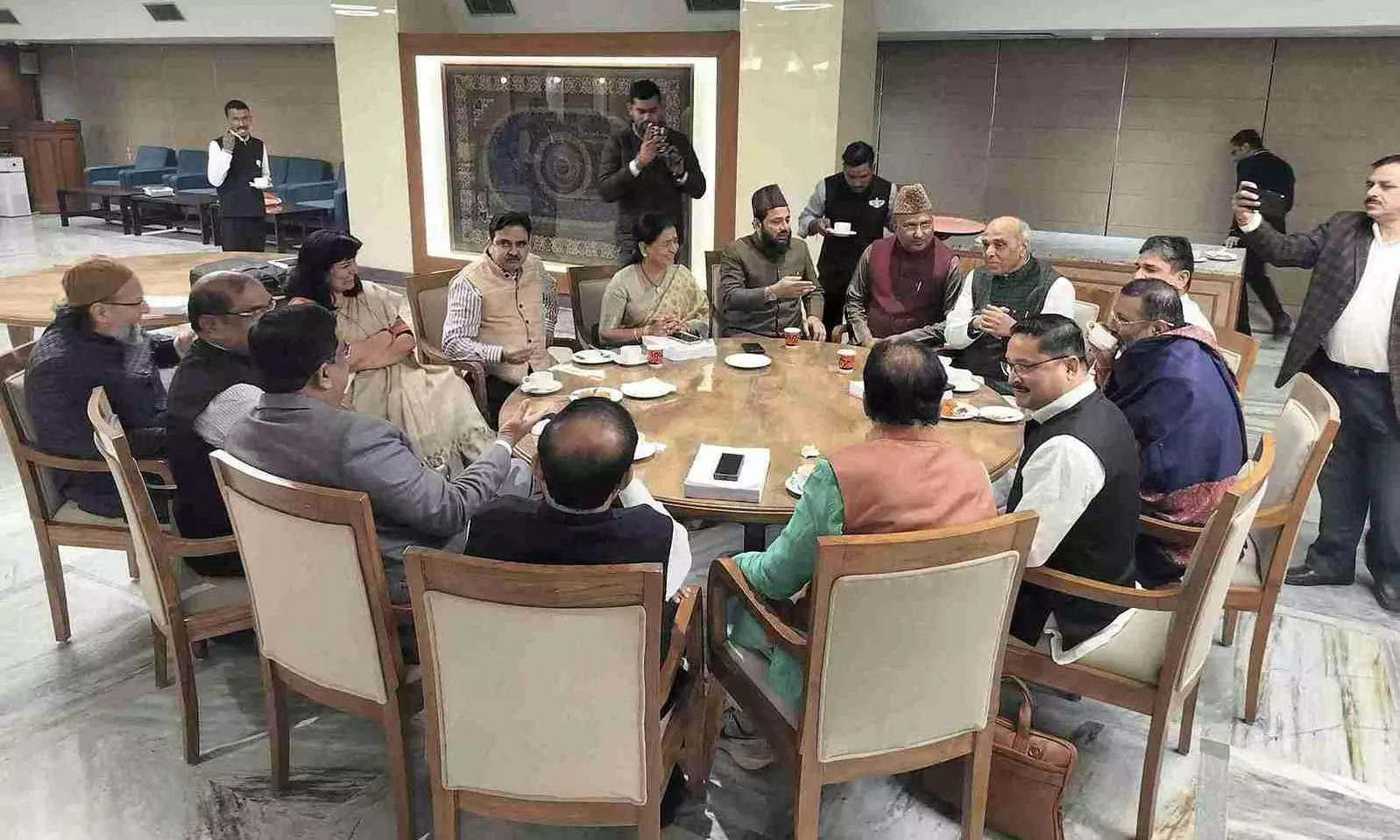
Union Cabinet clears 14 changes to Waqf Bill proposed by JPC: Report
The JPC had witnessed prolonged fights between the opposition and the BJP members, with the opposition accusing Jagadambika Pal of bias and rushing the bill without sufficient consultation

The Union Cabinet last week reportedly approved 14 changes to the Waqf (Amendment) Bill proposed by a joint parliamentary committee (JPC).
The amended bill will probably be tabled when Parliament reconvenes on March 10.
The Cabinet accepted 14 of the 23 changes that were proposed by the parliamentary committee, sources told NDTV on Thursday (February 27).
Opposition MPs’ accusation
There was controversy over the deliberations in the JPC with the opposition MPs on the panel making an accusation that the sections of their dissent notes had vanished from the document submitted to the Cabinet.
The central government denied the accusation, but said that the JPC head, BJP’s Jagadambika Pal, had the discretion to remove certain sections from the document that cast aspersions on the committee.
Also Read: Waqf JPC report | Ruckus over dissident notes: What happens next?
Finally, after a meeting among Lok Sabha Speaker Om Birla, Parliamentary Affairs Minister Kiren Rijiju, and the opposition MPs in the JPC, it was decided that their dissent notes would be included in their original form.
Prolonged fights in JPC
The JPC had witnessed prolonged fights between the opposition and the BJP members over the way the committee functioned, with the opposition MPs accusing Jagadambika Pal of bias and rushing the bill without sufficient consultation.
They even wrote to the Lok Sabha Speaker on the issue, and accused Pal of trying to steamroll the Waqf Bill through the House because of the Delhi assembly elections that were held on February 5.
The BJP however claimed that Pal “tried to hear everybody out and gave sufficient time for everybody to move amendments”.
Several of the nearly three-dozen JPC hearings over the past six months ended in chaos, and there was even physical violence at one of the hearings when TMC MP Kalyan Banerjee smashed a glass bottle on a table. He said he was provoked by BJP MP Abhijit Gangopadhyay.
Opposition’s changes rejected
The opposition MPs’ accusations seem to be justified because out of the 66 changes that were proposed, all 44 proposed by the opposition were rejected. Only the 23 changes proposed by the BJP and its allies were accepted.
The JPC had 16 MPs from the BJP and its allied parties, and only 10 MPs from the opposition.
Also Read: Waqf report reflects BJP’s majoritarian attitude, not majority opinion: MP Md Jawed
Some of the changes
Among the 14 changes accepted by the Cabinet, one includes distinguishing between the mandatory two non-Muslim members and the nominated ex-officio members (Muslim or non-Muslim). The implication is that the waqf councils will have at least two, and possibly more non-Muslim members.
Another change is that an officer nominated by the concerned State will determine if a property is “waqf”, instead of the District Collector.
A third change is that the law will not apply retrospectively, as long as the property in question is already registered. To this, Congress MP Imran Masood raised the pertinent point that almost 90 per cent of waqf properties are not registered.
Also Read: Waqf Bill | JPCs only for show, govt using these to push agenda: Oppn
Contrary views on the bill
While the BJP and its allies say the purpose of the changes to the bill is to empower Muslim women and children who they claim had suffered under the old law, opposition leaders like KC Venugopal of the Congress said it constitutes a “direct attack on freedom of religion”.
Asaduddin Owaisi, the AIMIM supremo and DMK MP Kanimozhi argue that the amended bill violates several sections of the Constitution, including Art 15 (the right to practise a religion of one’s choice) and Art 30 (the right of minority communities to establish and administer their educational institutions).

